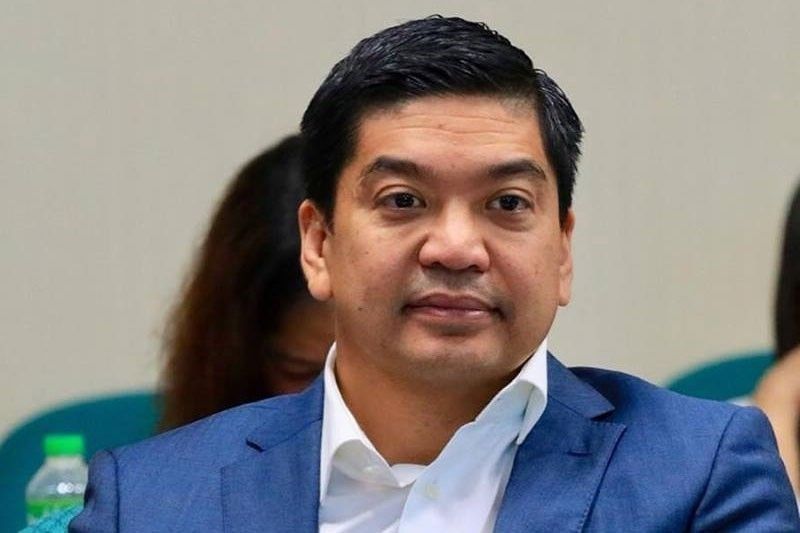Medical marijuana bill filed

MANILA, Philippines — Camarines Sur Rep. LRay Villafuerte has pushed for the passage of his bill that seeks to legalize the local production and export of medical marijuana, but the Dangerous Drugs Board (DDB) opposed the measure.
The DDB opposed the proposal to legalize the production and export of marijuana and instead urged lawmakers to pass a law that would strengthen government’s rehabilitation programs for drug dependents.
Villafuerte urged the committee on health to deliberate and approve House Bill No. 3961, which seeks to expand the use of medical cannabis “to make it a lot more accessible and cheaper for Filipinos in need of this revolutionary medicine.”
The United Nations Commission on Narcotics Drugs (UN-CND) voted last week to remove from its list of most dangerous drugs cannabidiol (CBD), a non-addictive and non-psychoactive component of the cannabis plant.
Villafuerte, vice chair of public accounts committee, said this development is game-changing and has bolstered the international recognition and commercial marketing of the medicinal and therapeutic benefits of CBD.
“Considering the UN-CND vote last week to remove cannabis from the list of the dangerous category of narcotic drugs—where it used to be listed alongside heroin and other addictive opioids—it’s about time for the House health panel to submit HB 3961 to a committee vote so lawmakers could finally take action on this proposal,” the ranking lawmaker stressed.
Villafuerte gave assurance that his bill does not run counter to the Duterte administration’s policy against illegal drugs.
“CBD is the medicinal strain of the cannabis plant that is neither addictive nor producing the so-called buzz or ‘high’ for recreational users,” he argued.
The DDB had already approved last February the use of CBD for people with epilepsy.
DDB chairman Catalino Cuy said under Republic Act 9165 or the Comprehensive Dangerous Drugs Act, using medical marijuana for compassionate use for people with terminal illnesses is allowed in the country.
“Another bill is not really needed but definitely ‘yung recreational use and culvitation of marijauna are still prohibited,” Cuy said during the Kapihan sa Manila Bay forum.
Cuy urged Congress to pass a law that would institutionalize community-based rehabilitation facilities and anti-drug abuse councils up to the local level of government.
He said strengthening these programs would sustain the government’s anti-drug campaign beyond President Duterte’s term which will end in 2022.
From three to four million drug users in 2016, Cuy said the number went down to 1.67 million. He expressed confidence the number will further decrease even if Duterte is no longer in power if the programs they are pushing are institutionalized.
According to Cuy, the House committee on dangerous drugs chaired by Surigao del Norte Rep. Robert Ace Barbers has approved their recommendation to institutionalize community based rehabilitation facilities and anti-drug abuse councils.
The World Health Organization (WHO) also recommended to the UN-CND to allow CBD with 0.2 percent THC to be reclassified in the 1971 UN Convention on Psychotropic Substances as Schedule 4.
Villafuerte said that with this most recent CND vote, both the DDB and Food and Drug Administration (FDA) should now take the appropriate steps in support of this medical breakthrough at the UN.
He stressed that the kind of CBD he wants the government to develop and market from the cannabis plant for its multibillion-dollar export potential is the same ingredient found in carrots, black pepper and Echinacea tea, among others.
The bill seeks the creation of the Philippine Cannabis Development Authority (PhilCADA) to oversee the local production of CBD and would subsequently make it more affordable for people in need of treatment, instead of its use being limited to those suffering from epilepsy.
He said the establishment of PhilCADA would “eventually lead to the local, regulated supply of this pain reliever that will become more accessible and affordable for Filipinos afflicted with certain diseases.”
“Such an end result is in keeping with the ultimate goal of President Duterte to make medical care more accessible and affordable for the Filipino people, as shown by, among others, his enactment of Republic Act 11223 establishing the UHC (universal healthcare program) and RA 11467 that earmarked additional funds for the UHC and exempted from the VAT (value-added tax) the medicines for the treatment of hypertension, diabetes and high cholesterol,” he explained.
Duterte has also issued Executive Order No. 104 putting a cap on the retail and wholesale prices of 88 medicines and 133 preparation drugs, including those for hypertension, cardiovascular disease, diabetes and certain types of cancer, said Villafuerte, who co-authored the law on the “sin” tax hike.
Villafuerte cited the need to legalize local production of CBD to lower its cost and make it more affordable to Filipino patients in need of such revolutionary treatment.
In the same measure, Villafuerte also sought international marketing of CBD so the country could cash in on this nascent multibillion-dollar industry, which could soar to a $75-billion industry by the year 2030 based on the Cowen Research Report in the United States.
At present, he said the sale of CBD in the US alone is a $390-million-per-year business and could grow into a $1.3-billion trade by 2022.
By cashing in on this booming global market ahead of the competition, Villafuerte said the government could generate more revenues that it could use to spend bigger on Duterte’s centerpiece “Build, Build, Build” infrastructure modernization and his other priority programs on human capital formation such as education, health care and social protection.
Villafuerte pointed out that other countries with zero tolerance for drug trafficking like Singapore and China are either already producing medical cannabis or considering the legalization of the drug for medicinal purposes.
He said Thailand’s military government also unanimously approved medical marijuana use, despite the country’s strict narcotics laws, which imposes the penalty of death on drug users. — Emmanuel Tupas
- Latest
- Trending





























